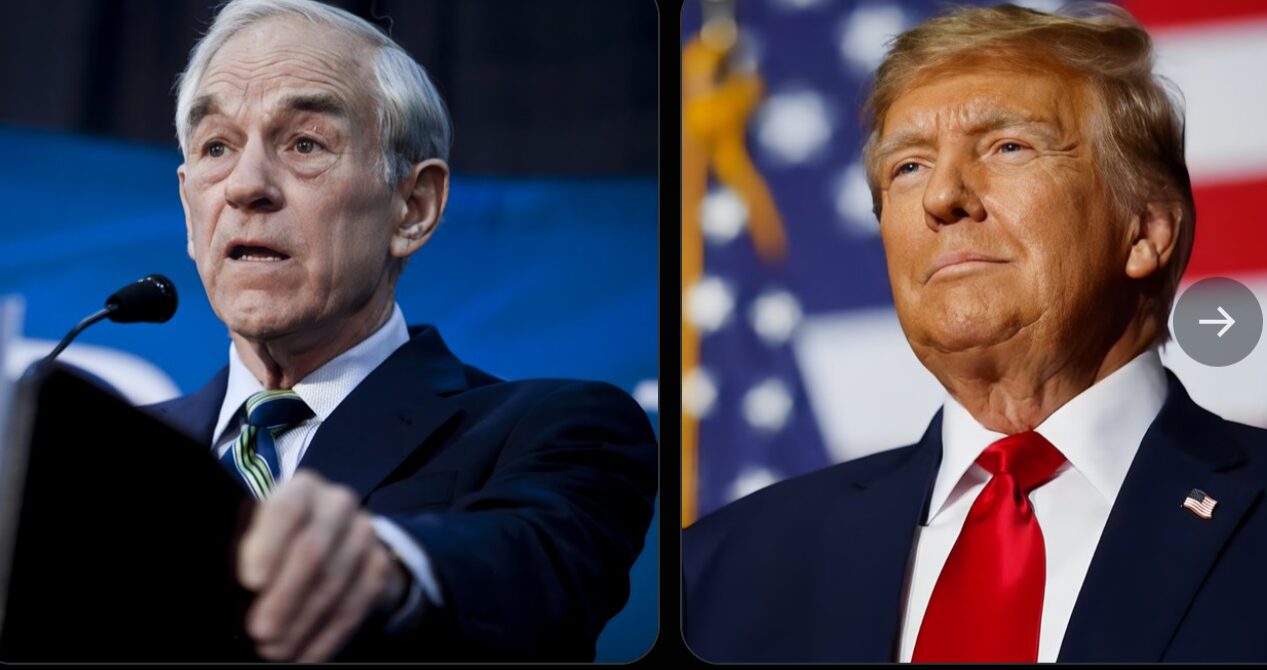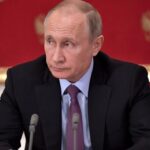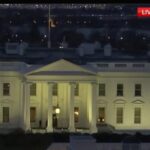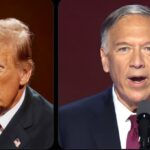DOGE Advisor Ron Paul calls on US to DEFUND the National Endowment for Democracy (NED)
Ron Paul Calls on the U.S. to Defund the National Endowment for Democracy (NED): A Look at the Debate
In a bold statement that is making waves in political circles, Ron Paul, the former Congressman and well-known libertarian advocate, has called for the U.S. government to defund the National Endowment for Democracy (NED). This call comes amid increasing concerns about the NED’s role in promoting U.S. political interests abroad and its controversial funding of organizations in foreign nations. Paul’s position challenges a longstanding institution that has been a key player in U.S. foreign policy for decades, sparking a larger debate about the U.S. government’s role in democracy promotion and international intervention.
What is the National Endowment for Democracy (NED)?
The National Endowment for Democracy, or NED, is a private, non-profit organization established in 1983 by the U.S. Congress with the purpose of promoting democracy worldwide. Its mission is to support civil society organizations, human rights advocacy, and democratic governance in countries that are considered to be in transition or under authoritarian regimes. Funded by the U.S. government, the NED has become a key instrument in American foreign policy aimed at fostering democratic movements, particularly in countries with repressive governments.
The NED allocates millions of dollars each year to various international organizations, non-governmental organizations (NGOs), and grassroots groups that advocate for political reform, transparency, and the rule of law. The endowment also funds efforts related to free elections, media freedom, and human rights. In theory, the NED’s work is aligned with the ideals of spreading democracy and promoting peaceful political change globally.
However, over the years, the organization has faced increasing scrutiny and criticism. Some accuse the NED of being a tool of U.S. foreign policy interests, using democracy promotion as a cover for advancing American geopolitical goals. This is where Ron Paul’s concerns about the NED come into play.
Ron Paul’s Call to Defund the NED
Ron Paul, a long-time critic of U.S. foreign intervention, has consistently argued for a more restrained and non-interventionist foreign policy. His call to defund the NED is part of his broader criticism of U.S. government involvement in foreign affairs. According to Paul, organizations like the NED are part of a larger pattern of American interference in the internal affairs of sovereign nations, often with unintended and destabilizing consequences.
Paul’s criticism of the NED is rooted in the belief that the U.S. government should not be in the business of funding political movements or influencing the political outcomes of other nations. He believes that the NED’s activities are not only undemocratic but also counterproductive, as they often lead to resentment against the U.S. and can create instability in countries where they operate.
One of Paul’s central arguments is that the NED is used to promote policies that serve U.S. interests, rather than genuinely supporting democratic movements. He points to instances where NED-backed initiatives have been linked to regime change efforts, particularly in countries where the U.S. has geopolitical interests. For example, the NED has faced criticism for its involvement in countries like Venezuela, Ukraine, and Myanmar, where its funding has been tied to political movements that oppose existing governments.
In Paul’s view, the NED contributes to the growing trend of U.S. “empire building” through covert and overt operations that undermine the sovereignty of other nations. By defunding the NED, Paul argues, the U.S. would take a step toward reducing its role as a global policeman and allowing nations to determine their political futures without foreign interference.
The Debate Over Democracy Promotion
The debate over the NED is not new. Supporters of the organization argue that democracy promotion is a legitimate and vital component of U.S. foreign policy, helping to advance human rights and political freedoms in countries where these values are under threat. They contend that by supporting civil society groups, independent media, and pro-democracy activists, the NED is fostering positive change and contributing to the global spread of democracy.
Proponents also argue that the NED’s work is crucial for countries transitioning from authoritarian regimes to democratic systems, as it helps build the necessary infrastructure for free elections and democratic governance. In many cases, they say, the NED provides crucial support for local organizations that would otherwise be silenced by oppressive regimes.
However, critics argue that the NED’s interventions are often more about furthering U.S. strategic interests than about fostering true democratic values. They point out that the U.S. has historically supported authoritarian regimes when it suited its geopolitical objectives, and that the NED’s efforts can sometimes be seen as an extension of this policy. For instance, critics argue that the NED has at times funded movements in countries that oppose U.S. adversaries, without necessarily supporting the democratic aspirations of the people living there.
In this context, Ron Paul’s call to defund the NED reflects broader concerns about the potential consequences of foreign interference. He contends that the U.S. should not impose its political values on other nations, especially when such actions can lead to destabilization and conflict. His position aligns with a growing segment of the political spectrum that advocates for a more restrained foreign policy, focusing on diplomacy, trade, and non-intervention.
The Geopolitical Implications
The implications of Ron Paul’s call to defund the NED extend far beyond the organization itself. If the U.S. were to follow Paul’s advice, it would signal a shift in U.S. foreign policy away from interventionism and towards a more non-interventionist approach. This could have significant consequences for U.S. relations with other countries and its role on the global stage.
First, a move to defund the NED could be seen as a step toward reducing U.S. involvement in global political movements. This would be a departure from decades of U.S. foreign policy, which has often included promoting democracy and supporting pro-Western movements in countries like Iraq, Afghanistan, and the former Soviet states. For countries in regions such as Eastern Europe, the Middle East, and Latin America, the defunding of the NED could be perceived as a major shift in U.S. priorities and an indication that the U.S. is rethinking its role as a promoter of democracy abroad.
At the same time, critics of Paul’s position argue that reducing U.S. support for democracy promotion could leave a power vacuum, particularly in countries where authoritarian regimes are in power. The NED, they contend, plays an important role in supporting pro-democracy groups and fostering civil society in these countries, and without this support, there is a risk of authoritarianism taking deeper root.
The Future of U.S. Foreign Policy
Ron Paul’s call to defund the NED is part of a larger conversation about the future of U.S. foreign policy. As the world becomes more multipolar and U.S. influence wanes in certain parts of the globe, the question of how to approach global governance, democracy promotion, and international intervention remains a key issue.
For some, the NED represents an outdated and problematic tool of U.S. foreign policy, one that perpetuates interventionism and the perception of U.S. hegemony. For others, it is an important means of supporting global democracy and human rights, especially in places where authoritarian regimes are holding sway.
As the U.S. continues to grapple with its role in the world, Ron Paul’s position invites a reexamination of how the U.S. should engage with the rest of the world, particularly in the realm of democracy promotion. Should the U.S. step back from foreign interventions, or does it have a responsibility to continue supporting democracy and human rights on the global stage? This question will continue to shape the future of U.S. foreign policy for years to come.
Conclusion: A Divisive Issue
Ron Paul’s call to defund the NED is part of a larger conversation about the role of the U.S. in global politics. While the NED has been a force for promoting democratic values around the world, its actions have often been controversial, and its links to U.S. political and strategic interests are undeniable. As the debate continues, it will be important to consider both the benefits and the potential drawbacks of U.S. democracy promotion, and what approach will best serve both the United States and the broader global community in the coming decades.

















Post Comment